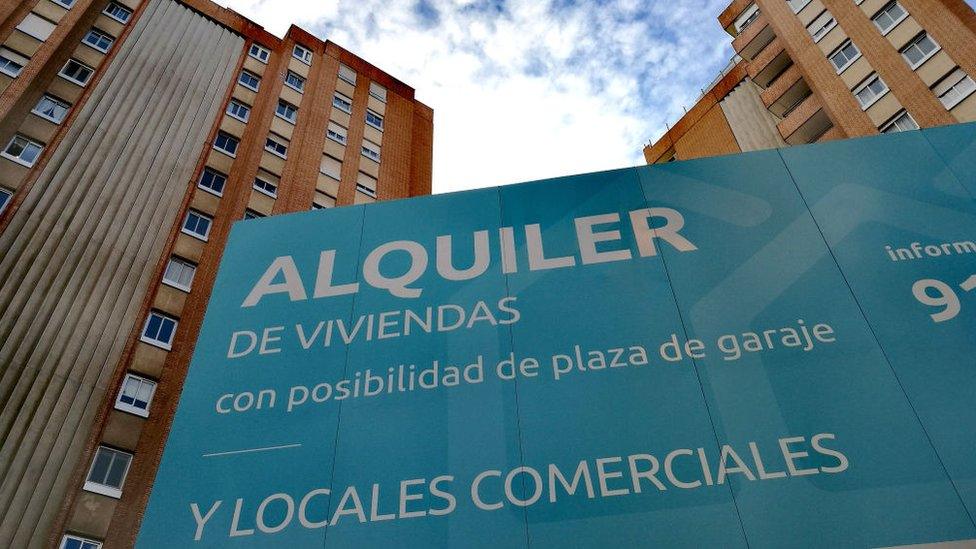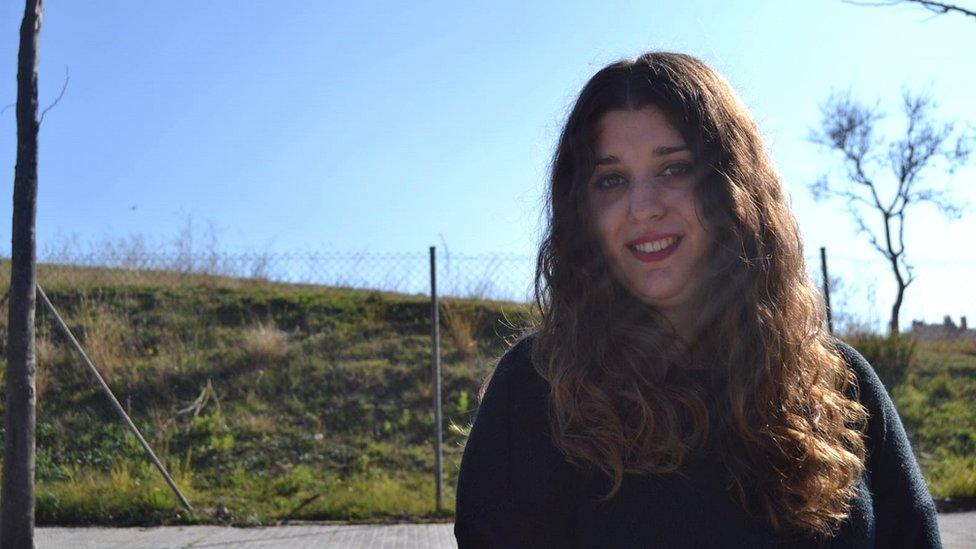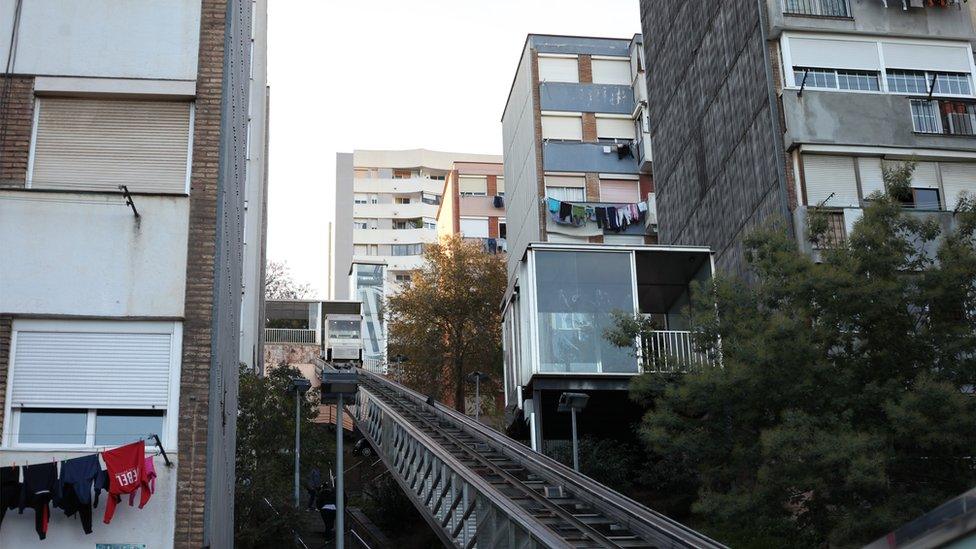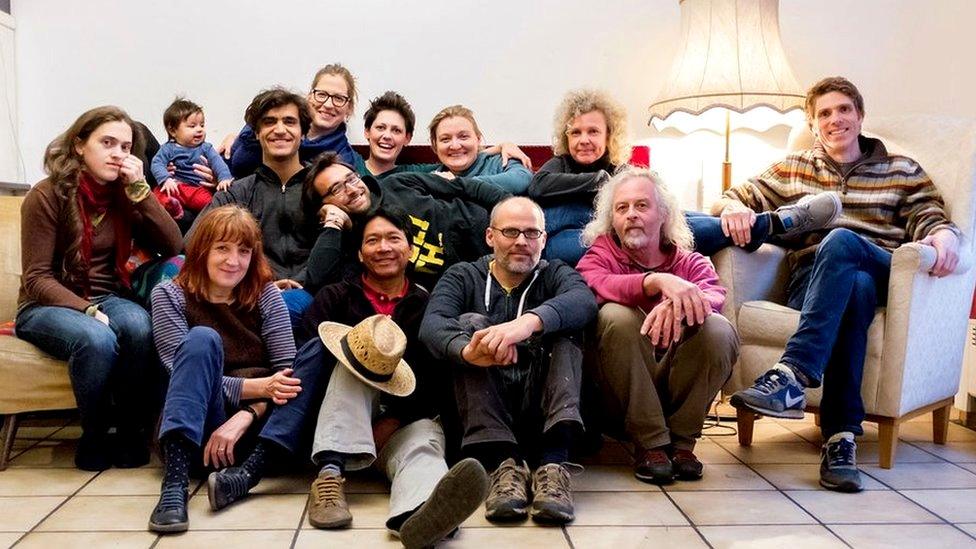Spain rent: Monthly €250 bonus plan for under-35s
- Published

Rents have soared in Spain's cities, particularly in the capital Madrid and in Barcelona
Spaniards aged 18-35 should be offered a monthly bonus to help them leave their parents' home and pay rent, Prime Minister Pedro Sánchez has proposed.
The €250 (£213; $290) benefit would be given for up to two years, and is part of a broader housing package.
A draft rental law would also introduce rental caps for big property owners, particularly in areas where rent has soared in recent years.
Spain has among Europe's highest rates of property ownership.
But that also means that fewer than one in four homes are available for rent. And in some areas, such as the big cities of Madrid and Barcelona, rents have been on the rise while incomes have fallen by over 7% in just one year due to the Covid-19 pandemic.
"Housing is a grave problem in our country," Mr Sánchez said.
Under the prime minister's plans, the youth bonus will be passed on by Spain's autonomous regional authorities to under-35s who earn less than €23,725 a year. They would decide whether it would be handed out per person or per rented home.
The intention is to enable more young people to move out of their parents' homes.

Why young Spaniards struggle to move

Spaniards leave their family home at the age of 30, nearly four years later than the EU average, according to Eurostat figures.
And since the peak of Spain's last economic boom in 2007, the proportion of 16- to 29-year-olds who have left home has been dropping steadily, from 26% to 16% last year.
Primary school teacher Rocío Martínez, 25, is still looking for her first job since graduating.
She and her partner live with her parents in Sant Feliu de Llobregat in Catalonia, in the north-east. Although her partner has a job, local housing prices, which are similar to those in nearby Barcelona, are out of their reach.

Rocío Martínez and her partner are desperate to move into rented accommodation
"Ideally we'd like to buy a flat," said Rocío. "But the prices are just exorbitant." Rental costs for flats, meanwhile, can range between €800 and €1,000 per month, she said.
The reason why renting for young people is so tight, particularly in the big cities, is that the average wage for a young person is €11,643 - just €970 a month.
"It's very frustrating because you think: 'I've finished my studies, I'm ready to work, how much longer do I have to keep living with my parents?'"
Youth unemployment in Spain is currently at around 33%.
Of those young people who do have jobs, just over half were on temporary contracts while 26% were on part-time contracts.

Joffre López Oller of the Spanish Youth Council (CJE) has warned that these figures reflect the "chronic precariousness" in the youth labour market.


For economist Emilio Ontiveros the left-wing government's plans, which have to get past MPs, are a good idea.
"There is a problem in the rental sector, in young people's access to it. It's a problem of freedom, both economic and sociological," he told Cadena Ser radio.

Renting in and around Barcelona can reach up to €1,000 a month
The separate housing bill proposed by the government aims to lower rental costs for vulnerable people as much as young Spaniards.
Smaller property owners would be offered bigger tax incentives for reducing their rents, while property taxes would be raised on empty properties and 30% of all new homes would have to be earmarked for social housing.
Companies owning more than 10 properties would be subject to rental caps in areas of high demand.
EVICTION DURING COVID: 'Sometimes I want to cry'
SPANISH HOUSING: Why apartments dominate housing market
Related topics
- Published4 March 2021

- Published26 August 2021

- Published12 December 2018
